 Richmond Cornfidential Richmond Cornfidential
Secession Fever Erupts in West County
By April Furst, Staff Writer Posted March 31, 2013 11:59 pm
For many in West Contra Costa County, the power grab that snatched the prospective call center with 200+ good paying jobs from Richmond and unfairly and summarily placed it in undeserving Concord was the last straw in a long simmering battle for equal treatment from Contra Costa County leaders.
Contra Costa Times Columnist Lisa Vorderbrueggen recently poked fun at West County’s outrage by describing Richmond as “crabby,” which is like calling a murder victim “inconvenienced.” “Those people over the hill don’t respect West County,” said Richmond City Manager Bill Lindsay. “I live out there [Central County], and I can tell you that’s their sordid state of mind. They’ll never take us seriously until we take ourselves out of Contra Costa County.”
A move to secede from Contra Costa and form a new county has been quietly growing for a decade, and West County leaders have laid the groundwork for a move that will soon surface like a ballistic missile shot from a nuclear submarine.
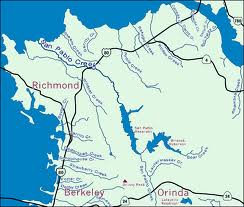
Although only 20 miles or less from the County seat in Martinez, the cities of West County might as well be separated by the continental divide.
In the early years of the 20th Century, industrial Richmond was Contra Costa County’s largest city, and it became even more of a powerhouse during WWII. But the suburban sprawl of the late 20th Century that continues today saw both power and population shift to central and eastern Contra Costa. Instead of being inclusive, Contra Costa leaders have taken every opportunity to treat Richmond like a colony, milking it for its resources while starving it of resources and services.
Compared to the rest of the county, West Contra Costa is substantially more diverse but also has chronically higher unemployment and lower household income. At the same time, it is both more urban and more mature.
Resentment has been building over the years, fueled by a series of events that have been discerned by West County residents as a long pattern of slights. First, it was the decision to build the County Hospital in Martinez, even though West County residents are the predominant users of public health care. That decision passed over the potential use of what is now Doctor’s Hospital as a county facility, and now Doctor’s is faced with bankruptcy, potentially leaving West County with no public hospital and no trauma facility.
Then there was the West County Detention Center, built to handle the overflow from Martinez but unavailable to West County police departments for bookings, resulting in significant costs to transfer prisoners to Martinez. West County got the stigma of a jail without any of the benefits.
West County police departments have complained for years that a combination of unmotivated district attorneys and soft judges has created a revolving door for criminals. You could feel the frustration of Hector Esparza of RPOA, who explained, “We make good arrests and transport them to Martinez, but sometimes they are released so soon they beat us back to Richmond. Often, we have arrested the same criminal twice in the same day.”
There is also a cultural divide in the way West County and the rest of the County perceive growth and climate change, always a hot button issue. West County is solidly Democratic, while Central and East County are more conservative. A Republican, former Danville mayor and County Supervisor Candace Andersen, represents the district that runs from Danville to San Ramon, and another Republican, Mary Piepho, represents eastern Contra Costa. In matters such as transportation, West County is focused on improving public transit, trails and bikeways while the rest of the County wants to build and expand freeways.
Secession in not easy, but leaders have carefully prepared, and they are ready to spring the trap. The easiest path is simply an act of the state legislature, and Senator Loni Hancock and Assembly Member Nancy Skinner, both of whom represent substantial areas of West County, have already filed the enabling legislation, designated as SB 1001 and AB 937. If that doesn’t work, a referendum is also in the works. “If it comes to gathering signatures,” vowed Richard Poe, “I can pledge $100,000 right now to get the job done.” Other disgruntled donors, including the RPOA and various public employee unions who have seen their County benefits cut, are enthusiastically joining the fray.
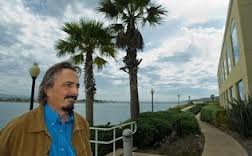
Newly appointed Council member Jael Myrick, whose day job is representing Assembly Member Nancy Skinner in West Contra Costa, says Skinner will designate him as the lead person for establishing the new county. “I’m especially honored,” said Myrick, “ to be so new at this and yet being given the responsibility of leading the charge.”
The name of the new county would be Castro County, named after Don Francisco Castro who was granted the 17,000 acre Rancho San Pablo in 1823. Castro and his wife Maria Gabriela Berryessa become the first European settlers in what was to became Contra Costa County, but they are virtually unknown today. The Castro family descendants also received Rancho El Sobrante, and the Castro family operated a ferry to San Francisco back when it was still called Yerba Buena, becoming barons of a major industry based on cattle ranching that reached the east coast and international markets. The Castro family dominated West County until well into the 19th Century. The Castro name not only invokes a colorful history; it also pays homage to the growing Hispanic population of West Contra Costa in modern times.
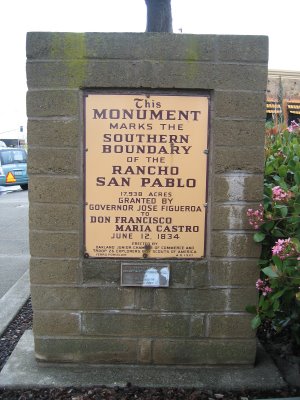
Castro County would become California’s 59th county and would exceed the population of at least 25 other California counties, ranging from tiny Alpine with 1,180 people to agricultural giant Imperial County with 160,000. Castro County would have more bay shoreline than any other county on San Francisco Bay and would be served by two interstate highways (I-80 and I-580), two railroads (BNSF and UP), three BART stations, the deep water Port of Richmond, Contra Costa Community College (to be renamed “Castro College”) and Rosie the Riveter WWII Home Front National Historical Park. There is already a courthouse in Richmond, which would become the county seat, and West County residents will no longer have to rush out to Martinez early in the morning when called for jury duty. There would be jobs for hundreds of new county employees, and the expanded Castro County government center would be a big boost to the Richmond economy.
West County leaders are solidly behind the plan. Leading the charge is Richmond’s Mayor McLaughlin, who minced no words by castigating the Board of Supervisors. “They can treat us like dirt for only so long, but at the end of the day, they will be the ones eating worms.”
Mayor McLaughlin especially liked the proposed name. “I really like the reference to [Fidel and Raúl] Castro,” said Gayle, who has been trying unsuccessfully to organize a sister city trip to Cuba for years, and the word ‘Castro’ also invokes and shows support for our LGBT brothers and sisters embodied in the Castro District of San Francisco.”
Jim Rogers, who once served on the Contra Costa County Board of Supervisors, was equally enthusiastic. “This will open up at least four other supervisorial seats for the new Castro County. It will give me a great opportunity to run again without opposing the entrenched John Gioia, and if I win, it pays a lot better than the Richmond City Council.”
Former Richmond City Council Member Alex Evans, CEO of EMC, has released a poll showing overwhelming support for the move from most of West Contra Costa County. “There are a few pockets of resistance,” said Evans, “ in Hercules and the unincorporated portions of West County, but overall, we see a better than 80% level of support. People are simply fed up with being treated as second class citizens.”
Councilmember Nat Bates and Vice-mayor Corky Booze characterized it as yet another plot for takeover of political power by the RPA, greenies, treehuggers and socialists. “Right now, we have a balance in our county with at least two Republican supervisors who understand that the business community comes first, but with the new Castro County, it will become a green enclave governed by socialists. We have to stop this in its tracks!”
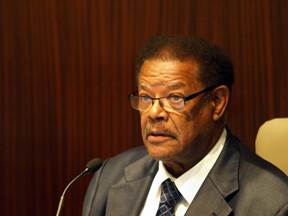
“My people will not take this lying down,” burst out Booze. “To you people watching at home, especially those on the Southside, you have to help me put down this insurrection.”
Councilmember Jovanka Beckles responded, “Corky, you seem to get more ignorant every day. It must be all those Casper’s hot dogs you live on. They say, you are what you eat.” Beckles continued, “I agree with the mayor. This is a beautiful thing, and it’s high time we do something to recognize our Hispanic heritage. In other words, Esto es una cosa hermosa, y ya es hora de que hagamos algo para reconocer nuestra herencia hispana.”
As expected, BAPAC, BWOPA, 1Richmond [not One Richmond] and those Men and Women of Valor and Purpose fell in behind Bates and Booze. Joe Fisher and Kathleen Sullivan called a joint press conference to announce formation of a “Preserve Contra Costa” advocacy committee. “Our rallying cry,” said Fisher, “is simple -- united we stand; divided we fall.”
What surprised many, however, is a preliminary decision by Chevron, the COI and the various chambers of commerce not to join or fund the opposition. Off the record, Katrinka Ruk of COI noted, “Today, when we need to influence a county supervisor, we have to chase each of them down from Richmond to Discovery Bay. It can take days. When Castro County is formed, we can sit them all down in a room together and simply tell them how it is going to be. All politics will then be truly local”
Chevron Spokesman and former Richmond Chamber Board Chair Joe Lorenz made no bones about his resentment towards Contra Costa Health Services, currently charged with enforcing Richmond’s Industrial Safety Ordinance. “They are increasingly overzealous, he pointed out. “ With our own county, we can make sure we have enforcers who have more appreciation for the challenges we face trying to keep a 100-year old refinery just running at all. Safety is nice, but keeping gasoline flowing is what people really care about.”
While Richmond is West County’s largest city and population center, the Castro County proposal is being well received elsewhere as well. El Cerrito Mayor Greg Lyman, an engineer by profession, noted that El Cerrito sees almost no infrastructure services from Contra Costa County. “Sometimes, I think they don’t even know we are here. John Gioia, bless his heart, whose office is in El Cerrito, does his best to see that we get equitable service from the County, but he must feel like Sisyphus.”
“There is a lot of Castro family history embedded in El Cerrito,” continued Lyman, an avid student of history. “Don Victor Ramon Castro was born March 6, 1820, the 11th of 14 children born to Gabriella and Francisco Castro. Don Victor Castro is believed to have been the first non-Native American to be a permanent resident of El Cerrito. His first wife, Luisa Martinez, was the daughter of Don Ignacio Martinez, whose 17,000 acre land grant included what is now Pinole and Hercules. Don Victor was well known for his hospitality. He served on the Board of Supervisors during the early days of Contra Costa County. He named Point Isabel after his daughter Isabella. He died at age 80 on May 5, 1900.”
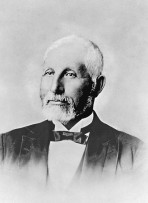
Pinole Mayor Debbie Long has a city that is split between two supervisors. “Neither of them knows where their district begins or ends,” she wailed, “ so they just don’t even show up at all. They might as well not even know where we are. In the new County of Castro, I’m sure we would have only one supervisor, and he or she would certainly live in Pinole.”
Mayor John Delgado of Hercules concurred with the new county name of Castro. “Hercules was part of the Rancho el Pinole, a grant of land in Contra Costa County which had been awarded to Don Ignacio Martinez for service to the Mexican government. The town of Martinez, part of which included Rancho el Pinole, was named for him, but his daughter married into the Castro family.”
San Pablo Mayor Genoveva Calloway was ecstatic about the new county’s proposed name. “San Pablo’s history is intertwined with the Castro family,” she explained. “ Governor of Mexican Alta California, Juan Alvarado, married one of the Castro daughters in 1839. After his term as governor was completed, they retired to her family property in Rancho San Pablo. The Alvarado Adobe, in the Civic Center, is a replica of the home they lived in on that very spot from 1848 until the governor's death in 1882.”
However, former Richmond City Council candidate Mark Wassberg flew into an obscenity-spewing rage, accusing Castro County advocates of aiding and abetting illegal immigration. “To the Native Americans,” fumed Wassberg, “the Castros were the first illegal aliens. If you have to pick a name, you should call it Ohlone County after the only indigenous people who ever lived here.”
“You got that right,” echoed Mike ‘Raccoon Eyes’ [Ali] Kinney, an icon of the local native American Community. “I’m going to tell it like it is. If you name this new county Castro, I’m going to put a curse on it that will cause its grass to wither and its streams to run no more forever.”
Former Contra Costa County Supervisor, gentlemen farmer and governmental affairs consultant Tom Powers has been providing discreet consultation to the yet undisclosed steering committee. Invoking agricultural metaphors, Powers observed, “This secession movement is like a seed. It lies invisible underground. You water and fertilize it and then one day when the season is right, it just pops into the sunlight, and there’s no stopping it.”
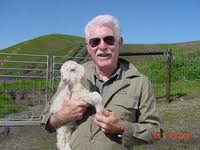
Current Contra Costa District 1 Supervisor John Gioia is keeping a low profile. “Don’t print this,” he said, “but I have to work with the board [of supervisors] whether this happens or not. It’s a great idea. But if I publicly support it, I’ll never get another vote from them on anything.”
Bea Roberson asked, “Do you really trust this group of people to pull this off? They’ve messed up everything else they’ve done in Richmond, and now we’re having to live with the consequences.” Then Roberson turned on a positive note, “I think I’ll run for one of the new supervisorial seats. My billboards are still up, and I’m sure Chevron will back me again.”
Richmond Police Chief Chris Magnus was ecstatic. “For years, they have kept us from using the West County Detention Center. I’m not usually a vengeful person, but when Castro County is formed, we’ll own it, and we’ll make them pay dearly.”
Tom Butt was unusually hard to reach and said to be laying low, but when I finally caught up with him, he simply said “I wish you a happy April Fool’s Day!”
|

